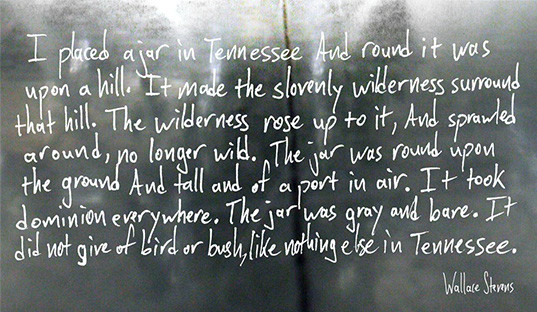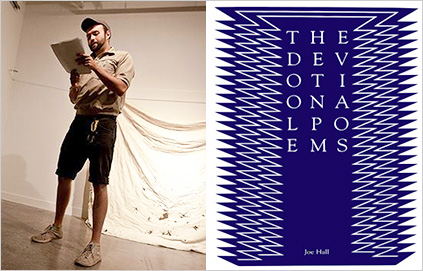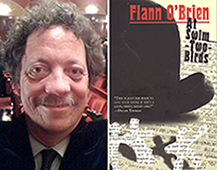 American poet Wallace Stevens was born on this day in 1879. Stevens is now considered one of the most influential writers of the twentieth-century—renowned curmudgeon Harold Bloom once called him “the best and most representative American poet of our time”—but he received little acclaim in his lifetime. As a poet, Stevens was primarily concerned with the power of the imagination to transform our surroundings. (And if, like Stevens, you worked for almost forty years as an insurance executive with the Hartford Accident and Indemnity Company, you might be pretty keen on imaginatively transforming your surroundings, too.)
American poet Wallace Stevens was born on this day in 1879. Stevens is now considered one of the most influential writers of the twentieth-century—renowned curmudgeon Harold Bloom once called him “the best and most representative American poet of our time”—but he received little acclaim in his lifetime. As a poet, Stevens was primarily concerned with the power of the imagination to transform our surroundings. (And if, like Stevens, you worked for almost forty years as an insurance executive with the Hartford Accident and Indemnity Company, you might be pretty keen on imaginatively transforming your surroundings, too.)
Stevens is mostly remembered for poems like The Emperor of Ice-Cream and Thirteen Ways of Looking at a Blackbird, gently mystical works that are often taught in classrooms by writing instructors desperate to foist a little creative thinking on their students (who will find two new ways to describe a blackbird—shiny! evil!—and then immediately resume writing the same stupid story about their best friend’s car accident).

However, Stevens was not merely a domesticated daydreamer: he had some fairly feisty views about the dangerous ways in which “the pressure of reality” dulls our powers of imaginative contemplation:
In speaking of the pressure of reality, I am thinking of life in a state of violence, not physically violent, as yet, for us in America, but physically violent for millions of our friends and for still more millions of our enemies and spiritually violent, it may be said, for everyone alive … A possible poet must be a poet capable of resisting or evading the pressure of reality of this last degree.
Happy birthday to the prescient Mr. Stevens. Here’s one of my favorite Stevens poems, “The Plain Sense of Things” (and there’s an illustrated reimagining of the poem here):
The Plain Sense of Things
After the leaves have fallen, we return
To a plain sense of things. It is as if
We had come to an end of the imagination,
Inanimate in an inert savoir.
It is difficult even to choose the adjective
For this blank cold, this sadness without cause.
The great structure has become a minor house.
No turban walks across the lessened floors.
The greenhouse never so badly needed paint.
The chimney is fifty years old and slants to one side.
A fantastic effort has failed, a repetition
In a repetitiousness of men and flies.
Yet the absence of the imagination had
Itself to be imagined. The great pond,
The plain sense of it, without reflections, leaves,
Mud, water like dirty glass, expressing silence
Of a sort, silence of a rat come out to see,
The great pond and its waste of the lilies, all this
Had to be imagined as an inevitable knowledge,
Required, as a necessity requires.



 American poet
American poet 
 With
With